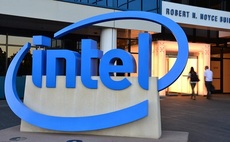Intel claims that M.2 compatible Optane 2280 will boost PC load times
While AMD has been busy launching its new Ryzen CPUs to generally positive reviews, Intel has instead focused on storage, with the launch this week of the Optane 2280. Intended as a M.2 compati...
To continue reading this article...
Join Computing
- Unlimited access to real-time news, analysis and opinion from the technology industry
- Receive important and breaking news in our daily newsletter
- Be the first to hear about our events and awards programmes
- Join live member only interviews with IT leaders at the ‘IT Lounge’; your chance to ask your burning tech questions and have them answered
- Access to the Computing Delta hub providing market intelligence and research
- Receive our members-only newsletter with exclusive opinion pieces from senior IT Leaders




















